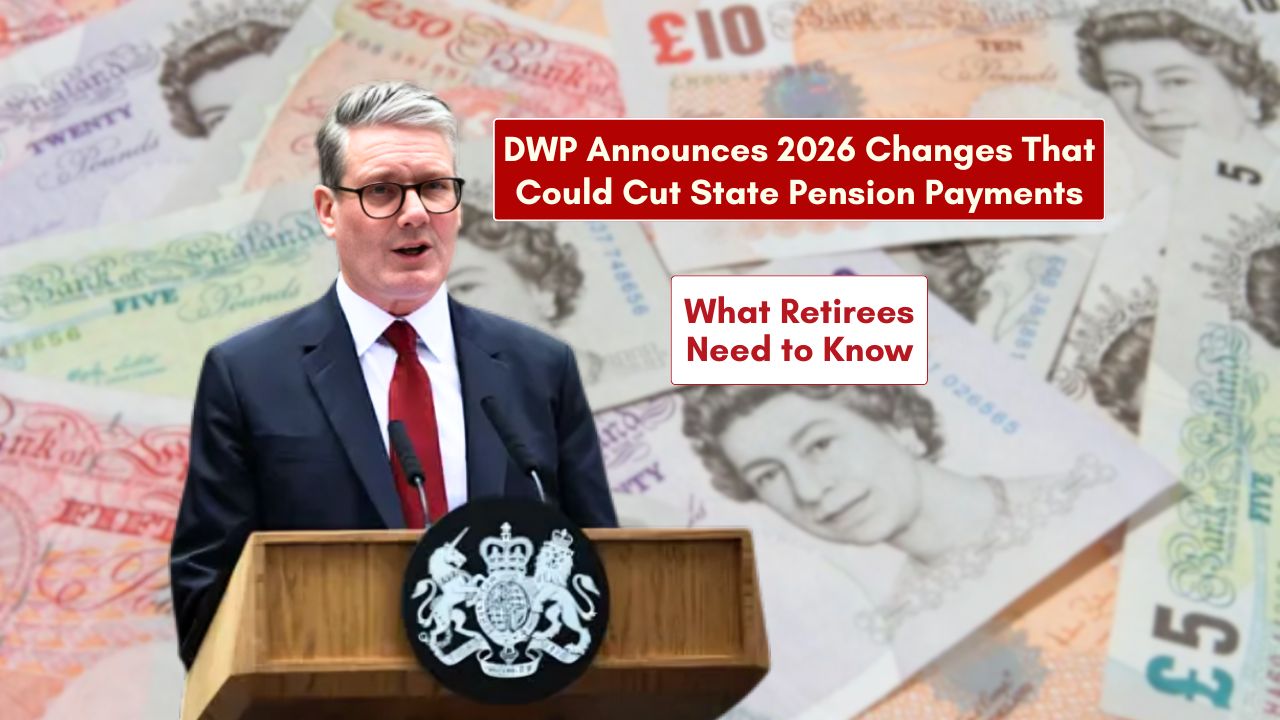The UK government has announced two significant changes to the State Pension that will impact millions across the country. Starting in April 2025, the State Pension will increase by 4.1%, giving pensioners a welcome income boost.
At the same time, the pension age will gradually rise from 66 to 67 between 2026 and 2028, meaning younger people may have to wait longer to retire.
Knowing these updates is important whether you’re nearing retirement or just planning ahead. Here’s everything explained in plain English.
Changes
Let’s start with a simple breakdown of what’s changing:
| Details | Information |
|---|---|
| State Pension Increase | From £221.20 to £230.25 per week |
| Basic State Pension | From £169.50 to £176.45 per week |
| Pension Age | Rises from 66 to 67 between 2026 and 2028 |
| Triple Lock | Will remain in place for 2025 to 2026 |
| Pension Credit | £227.10 for singles, £346.60 for couples (weekly) |
| Most Affected | Women, self-employed, unpaid carers |
History
The State Pension has been around since 1948 and remains one of the key sources of income for people in retirement. In 2010, the government introduced the triple lock system to ensure the pension increases each year based on inflation, wage growth, or 2.5% — whichever is highest.
The State Pension alone may not be enough for a comfortable retirement, but it’s an important foundation.
Increase
From April 6, 2025, pensioners will see a 4.1% increase in their weekly payments. That means:
- New State Pension will rise from £221.20 to £230.25 per week
- Basic State Pension will go from £169.50 to £176.45 per week
That adds up to roughly £470 more per year for those on the full new pension and around £360 extra for those on the basic pension. It’s a much-needed bump, especially with living costs continuing to rise.
Age
The second major change is the planned increase in the State Pension age. From May 2026 through March 2028, the minimum age to claim State Pension will rise from 66 to 67.
This affects people born between April 6, 1960 and April 5, 1977. The government says this is needed because people are living longer, and the pension system needs to stay sustainable.
There are also longer-term plans to raise the age to 68 in the 2040s.
Groups
Certain groups are more likely to be impacted by the pension age delay or could miss out on full payments:
- Women: Many have gaps in their National Insurance (NI) record from time spent raising children.
- Self-employed workers: They may have contributed less NI and could fall short of qualifying for the full pension.
- Carers: If they didn’t claim Carer’s Credit during periods of unpaid care, their pension amount may be reduced.
Tips
Here are some practical things you can do to prepare:
- Check your NI record early to see if there are gaps
- Consider delaying your pension claim — it increases by 5.8% for every year you wait
- Save extra through private pensions, workplace schemes, or ISAs
Don’t leave your future income up to chance — even small savings now can grow significantly over time.
Mistakes
Common mistakes people make when it comes to pensions:
- Assuming you’re automatically entitled to the full amount
- Not checking your NI contributions or correcting missing years
- Overlooking Pension Credit, which could provide extra money to low-income pensioners
Insights
Paul Maynard MP, Minister for Pensions, says these changes are about fairness:
“The triple lock remains crucial in helping pensioners deal with the cost of living, and the gradual changes to the pension age are essential to ensure fairness across generations.”
Becky O’Connor from PensionBee added that while the increase is welcome news for retirees, younger workers should still focus on building their own savings for the future.
Mistakes
If you think your pension forecast is wrong:
- Contact the Future Pension Centre
- Ask for a full NI record
- Appeal the decision if you think there’s an error
Catching issues early can make a big difference to your retirement income.
Future
The triple lock will stay in place for at least one more year, but some experts think it might be reviewed after that. It’s expensive to maintain and may not be sustainable long term.
There’s also talk of means testing pensions or further age increases in the coming decades. That’s why it’s more important than ever to take your own steps toward financial security in retirement.
FAQs
When will the pension rise take effect?
From 6 April 2025, with a 4.1% increase.
Who is affected by the age increase?
People born between April 1960 and April 1977.
What’s the new pension amount in 2025?
£230.25/week for new pension, £176.45 for basic.
Can I delay my pension to get more?
Yes, delaying increases your pension by around 5.8% yearly.
Will the triple lock continue?
Yes, it stays for the 2025–26 financial year.




















